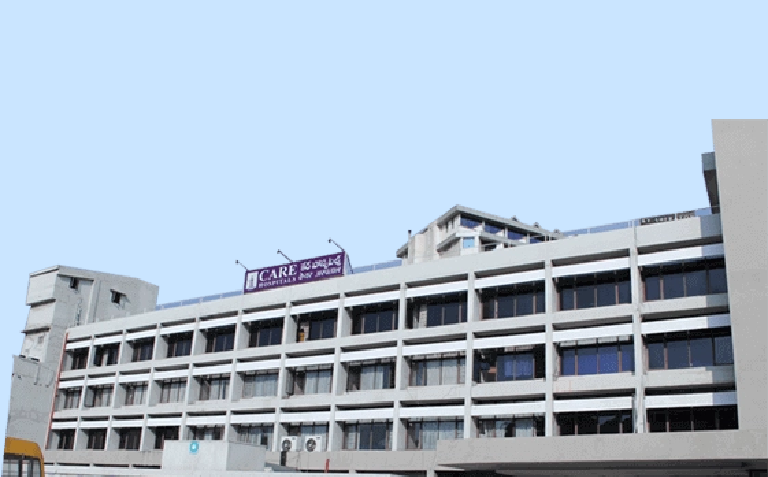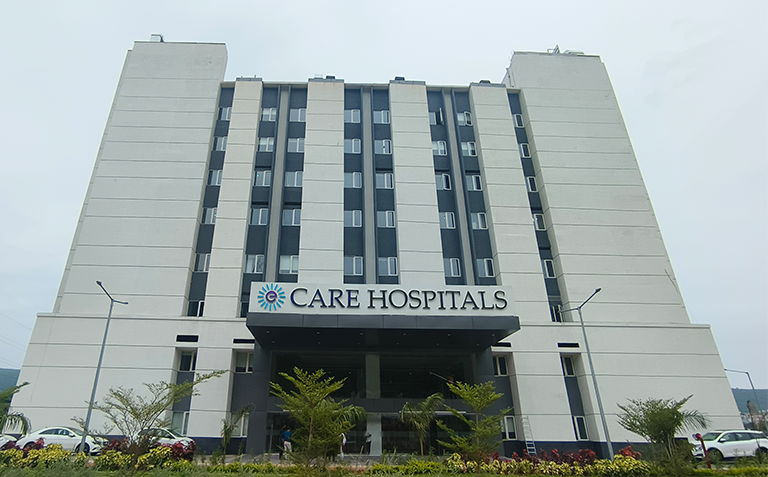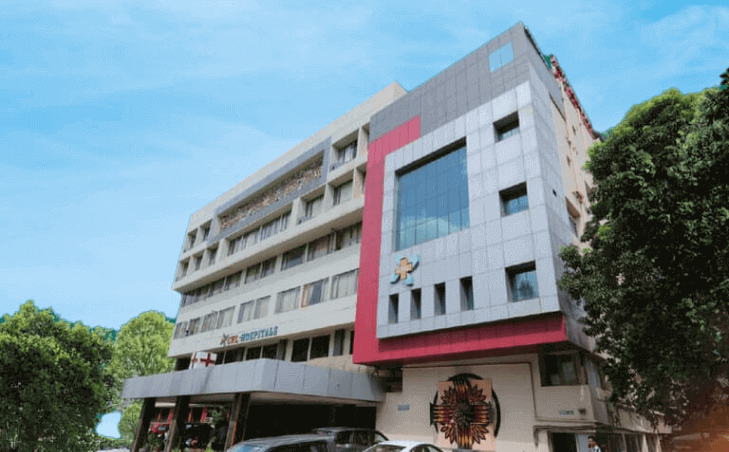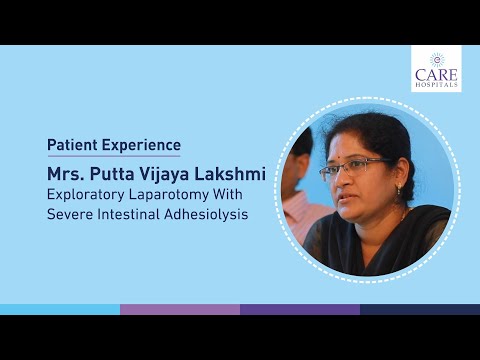-
Doctors
-
Specialities & Treatments
Centre of Excellence
Specialties
Treatments and Procedures
Hospitals & Directions HyderabadCARE Hospitals, Banjara Hills CARE Outpatient Centre, Banjara Hills CARE Hospitals, HITEC City CARE Hospitals, Nampally Gurunanak CARE Hospitals, Musheerabad CARE Hospitals Outpatient Centre, HITEC City CARE Hospitals, Malakpet
HyderabadCARE Hospitals, Banjara Hills CARE Outpatient Centre, Banjara Hills CARE Hospitals, HITEC City CARE Hospitals, Nampally Gurunanak CARE Hospitals, Musheerabad CARE Hospitals Outpatient Centre, HITEC City CARE Hospitals, Malakpet Raipur
Raipur
 Bhubaneswar
Bhubaneswar Visakhapatnam
Visakhapatnam
 Nagpur
Nagpur
 Indore
Indore
 Chh. Sambhajinagar
Chh. SambhajinagarClinics & Medical Centers
Book an AppointmentContact Us
Online Lab Reports
Book an Appointment
Consult Super-Specialist Doctors at CARE Hospitals

Gastroenterology – Surgical
Gastroenterology – Surgical
Best Surgical Gastroenterology Hospital in Hyderabad
The Department of Surgical Gastroenterology at CARE Hospitals aims at providing a standard of care in surgical gastroenterology at an affordable price. It deals with disorders of the digestive system which affect the human digestive tract, which includes the oesophagus, stomach, small intestine, appendix, colon, nasal canal, pancreas, liver and gallbladder. The department collaborates with medical gastroenterology, oncology, radiation, surgery, anaesthesia, pathology and microbiology to provide patients with multidisciplinary care. Our surgical gastroenterology hospital in Hyderabad offers patient-centered and evidence-based care.
We treat patients with gastrointestinal problems using surgical approaches under the supervision of our top surgical gastroenterologists in Hyderabad.
Gastroenterology is a speciality that provides treatments to patients with gastrointestinal problems who require surgery with state-of-the-art care. For patients with various gastrointestinal problems, including cancers of the gastrointestinal tract, we offer advanced laparoscopic surgical techniques. Cancer patients can undergo minimally invasive surgery that is oncologically sound, allowing them to heal more quickly and return to normal life more quickly.
Among the few departments which offer a multimodality approach to liver cancer, this department provides a multidisciplinary approach. Transoperative ultrasound guidance has been used in complex liver surgeries, making these procedures safer and leading to better outcomes. Furthermore, liver transplantation is an option for those who have liver cancer or chronic liver disease.
We offer patients with specific gastrointestinal surgical conditions specialized care in dedicated clinics.
Cancers of the gastrointestinal system are generally treated with surgery, chemotherapy, and radiation therapy. It is possible to remove part of the stomach or the entire stomach through surgery.
Advantages of Laparoscopic and Robotic Surgery for Gastrointestinal Procedures
- Minimally Invasive Approach: Both laparoscopic and robotic surgery techniques involve small incisions, resulting in less trauma to the surrounding tissues compared to traditional open surgery. This leads to reduced postoperative pain, shorter hospital stays, and faster recovery times for patients.
- Improved Cosmesis: Laparoscopic and robotic surgeries result in smaller scars compared to open surgery, which can enhance the cosmetic outcome and improve patient satisfaction with their surgical experience.
- Enhanced Visualization: Laparoscopic and robotic systems provide surgeons with magnified, high-definition 3D images of the surgical site, offering better visualization of anatomical structures and improved precision during gastrointestinal procedures.
- Greater Maneuverability and Dexterity: Robotic surgery systems offer enhanced maneuverability and dexterity compared to traditional laparoscopic instruments. The robotic arms can rotate 360 degrees and mimic the movements of the surgeon's hands with greater precision, allowing for more intricate and delicate maneuvers in confined spaces within the abdomen.
- Reduced Blood Loss: The precise dissection and cauterization capabilities of laparoscopic and robotic instruments help minimize blood loss during gastrointestinal procedures, leading to fewer transfusions and lower rates of intraoperative complications.
- Lower Risk of Surgical Site Infections: With smaller incisions and reduced tissue trauma, laparoscopic and robotic surgery techniques are associated with lower rates of surgical site infections compared to open surgery, promoting faster wound healing and reduced risk of postoperative complications.
Advanced Technology and Facilities for Gastroenterology Surgery at CARE Hospitals
- Minimally Invasive Techniques: Utilization of advanced laparoscopic and robotic surgery for precise procedures like hernia repair and colorectal surgeries.
- Endoscopic Excellence: High-definition endoscopes and advanced imaging for accurate diagnostics and therapeutic interventions such as ERCP and endoscopic ultrasound.
- Robotic Surgery: State-of-the-art robotic-assisted systems for complex surgeries, enhancing surgical precision and patient outcomes.
- Integrated Operating Rooms: Modern facilities with surgical navigation systems for real-time monitoring and enhanced coordination during procedures.
- Comprehensive Postoperative Care: Dedicated units for personalized recovery plans, ensuring optimal patient comfort and rehabilitation.
What are the specific surgical gastroenterology procedures performed?
Surgical gastroenterology encompasses a wide range of procedures aimed at diagnosing and treating disorders affecting the gastrointestinal (GI) tract. Some specific surgical procedures performed by gastroenterologists include:
- Esophageal Procedures:
- Fundoplication: Surgical procedure to treat gastroesophageal reflux disease (GERD) by wrapping the top of the stomach around the lower esophagus to prevent acid reflux.
- Esophagectomy: Removal of part or all of the esophagus, often performed for esophageal cancer or severe esophageal dysmotility disorders.
- Stomach Procedures:
- Gastrectomy: Surgical removal of all or part of the stomach, commonly performed for gastric cancer or severe peptic ulcer disease.
- Bariatric Surgery: Various procedures such as gastric bypass, sleeve gastrectomy, or gastric banding to promote weight loss in individuals with obesity.
- Small Intestine Procedures:
- Small Bowel Resection: Surgical removal of a portion of the small intestine, often performed for conditions such as Crohn's disease, small bowel tumors, or ischemic bowel disease.
- Colon and Rectal Procedures:
- Colectomy: Removal of all or part of the colon, performed for conditions such as colorectal cancer, inflammatory bowel disease (IBD), diverticulitis, or severe colonic dysmotility disorders.
- Proctectomy: Surgical removal of the rectum, often performed for rectal cancer or inflammatory conditions affecting the rectum.
- Anal Procedures:
- Hemorrhoidectomy: Surgical removal of hemorrhoids (swollen and inflamed veins in the anus or rectum) for symptomatic relief.
- Fistulotomy or Fistulectomy: Surgical procedures to treat anal fistulas, abnormal connections between the anal canal and surrounding skin or tissues.
Team of Gastroenterology at CARE Hospitals
Our surgical gastroenterology team at CARE Hospitals brings extensive experience in advanced gastrointestinal surgeries. With specialized training in minimally invasive techniques, they offer superior care for a wide range of digestive disorders. Our surgeons are dedicated to achieving excellent outcomes through expertise, compassion, and a commitment to patient well-being.
Our Doctors
-

Dr. C P Kothari
MBBS, MS, FICS, FIAGES, FMAS
Gastroenterology – Surgical
View More -

Dr. Amit Ganguly
MS (General Surgery), DNB (Surgical Gastroenterology)
Gastroenterology – Surgical
View More -

Dr. Alok Rath
MBBS, MS, FNB (Minimal Access & Surgery)
Gastroenterology – Surgical, General Surgery
View More -

Dr. B Ravinder Reddy
MBBS, MS, FRCS (Edinburgh), FRCS (Glasgow)
General Surgery, Gastroenterology – Surgical
View More -

Dr. Biswabasu Das
MBBS (Hons), MS (General Surgery), MCh (Surgical Gastroenterology) (AIIMS New Delhi), Fellow (HPB SURG) (MSKCC, NY, USA)
Gastroenterology – Surgical
View More -

Dr. Hitesh Kumar Dubey
M.B.B.S, M.S (Gen. Surgery), DNB-SS (G.I and HPB Surgery)
Gastroenterology – Surgical
View More -

Dr. J Vinod Kumar
MBBS, MS, FAIS, FIAGES, FMAS
General Surgery, Gastroenterology – Surgical
View More -

Dr. Jatashankar Mohapatra
MBBS, MS (General Surgery)
General Surgery, Gastroenterology – Surgical
View More -

Dr. Jawwad Naqvi
MBBS, MS, FIAGES, FMAS, FIALS
General Surgery, Gastroenterology – Surgical
View More -
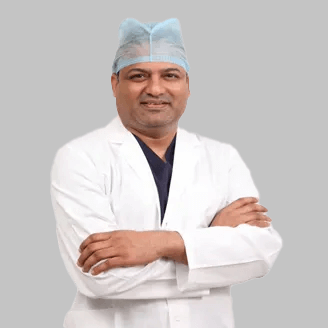
Dr. Karunakar Reddy
MBBS, MS (General Surgery), DNB (Surgical Gastroenterology)
Gastroenterology – Surgical
View More -

Dr. Mustafa Hussain Razvi
MBBS, MS (General Surgery), DNB (Surgical Gastroenterology)
General Surgery, Gastroenterology – Surgical
View More -
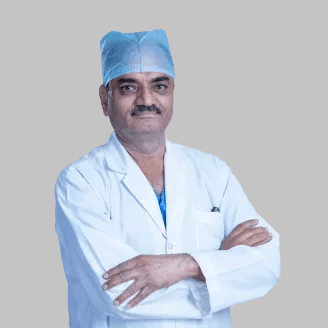
Dr. P. P. Sharma
MBBS, MS (Surgery), FAIS, FICS, FMAS, FIAGES
General Surgery, Gastroenterology – Surgical
View More -

Dr. Pardhasaradhi P
MBBS, MS General Surgery, DrNB Surgical Gastroenterology
Liver Transplantation and Hepatobiliary Surgery, Gastroenterology – Surgical
View More -
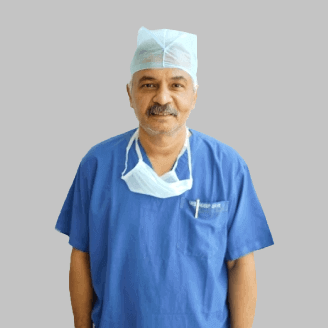
Dr. Sandeep Dave
MBBS, MS, FIAGES, FAMS
General Surgery, Gastroenterology – Surgical
View More -

Dr. Santosh Kumar Behera
MBBS, MS (General Surgery)
General Surgery, Gastroenterology – Surgical
View More -

Dr. Siddarth Tamaskar
MBBS, MS, FMAS, FIAGES
General Surgery, Gastroenterology – Surgical
View More -

Dr. Venugopal Pareek
MBBS, MS, DNB, FMAS, FIAGES, FAIS
Laparoscopic and Bariatric Surgery, Gastroenterology – Surgical
View More
Our Locations
CARE Hospitals, a part of the Evercare Group, brings international quality healthcare to serve patients across the world. With 17 healthcare facilities serving 7 cities across 6 states in India, we are counted among the top 5 pan-Indian hospital chains.
-
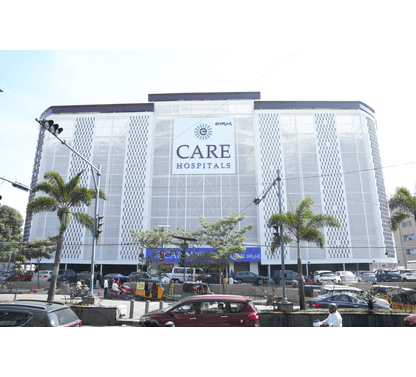
CARE Hospitals, Banjara Hills, Hyderabad
Road No.1, Banjara Hills, Hyderabad, Telangana - 500034
-
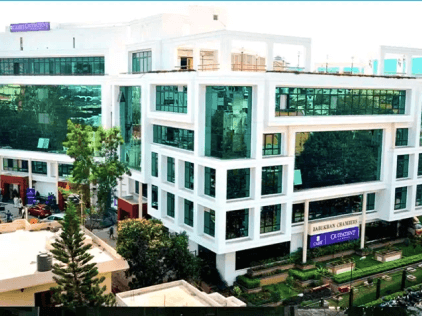
CARE Hospitals Outpatient Centre, Banjara Hills, Hyderabad
BabuKhan Chambers, Road No.10, Banjara Hills, Hyderabad, Telangana - 500034
-
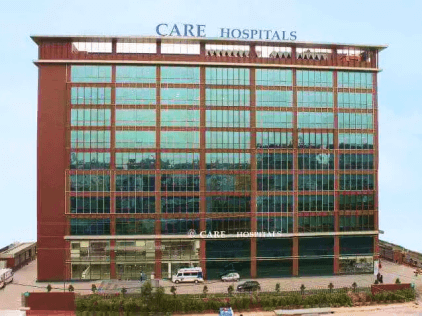
CARE Hospitals, HITEC City, Hyderabad
Old Mumbai Highway, Near Cyberabad Police Commissionerate, Jayabheri Pine Valley, HITEC City, Hyderabad, Telangana - 500032
-
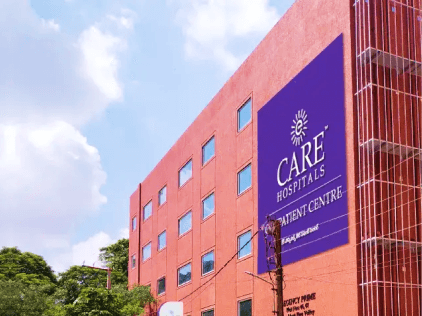
CARE Hospitals Outpatient Centre, HITEC City, Hyderabad
Jayabheri Pine Valley, Old Mumbai Highway, Near Cyberabad Police Commissionerate HITEC City, Hyderabad, Telangana - 500032
-
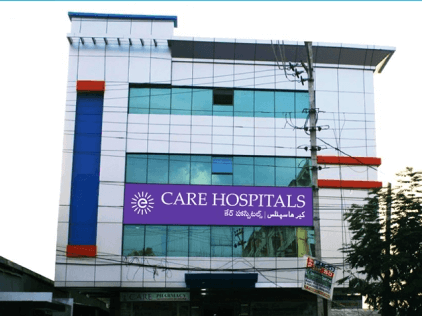
Gurunanak CARE Hospitals, Musheerabad, Hyderabad
1-4-908/7/1, Near Raja Deluxe Theatre, Bakaram, Musheerabad, Hyderabad, Telangana – 500020
-
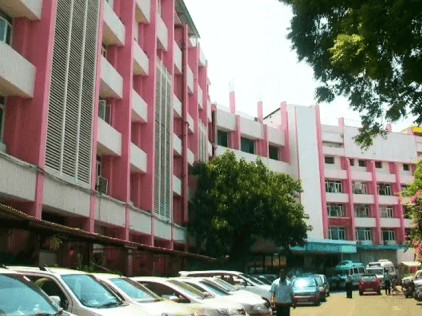
CARE Hospitals, Nampally, Hyderabad
Exhibition Grounds Road, Nampally, Hyderabad, Telangana – 500001
-
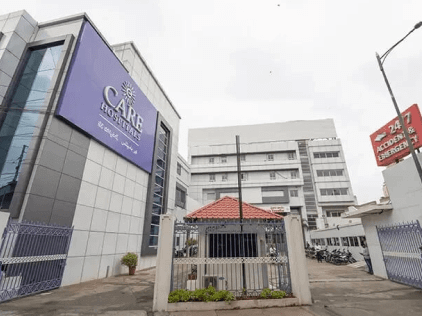
CARE Hospitals, Malakpet, Hyderabad
16-6-104 to 109, Old Kamal Theater Complex Chaderghat Road, Opp Niagara Hotel, Chaderghat, Hyderabad, Telangana - 500024
-
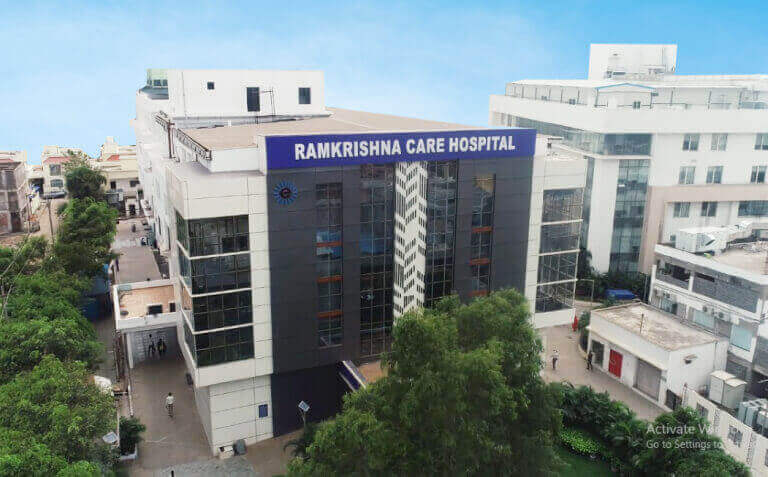
Ramkrishna CARE Hospitals, Raipur
Aurobindo Enclave, Pachpedhi Naka, Dhamtari Road, Raipur, Chhattisgarh - 492001
-
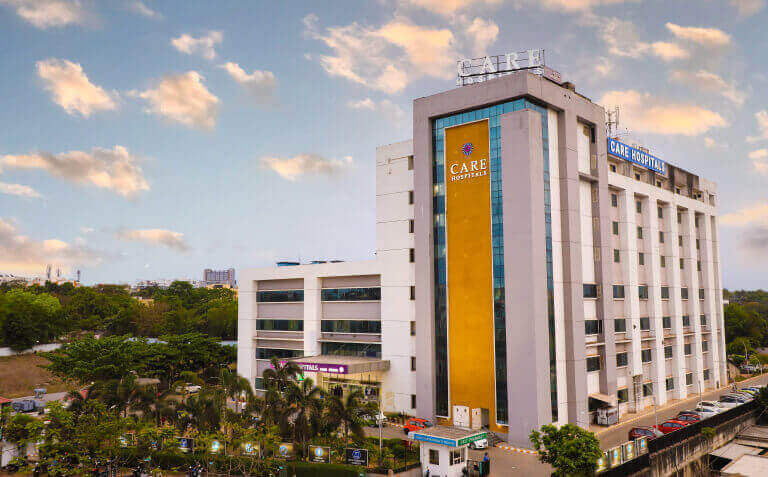
CARE Hospitals, Bhubaneswar
Unit No.42, Plot No. 324, Prachi Enclave Rd, Rail Vihar, Chandrasekharpur, Bhubaneswar, Odisha - 751016
-
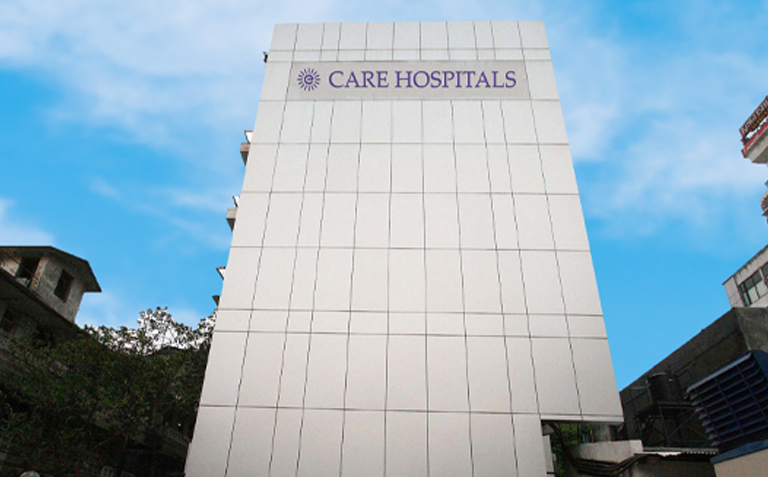
Ganga CARE Hospital Limited, Nagpur
3 Farmland, Panchsheel Square, Wardha Road, Nagpur, Maharashtra – 440012
-
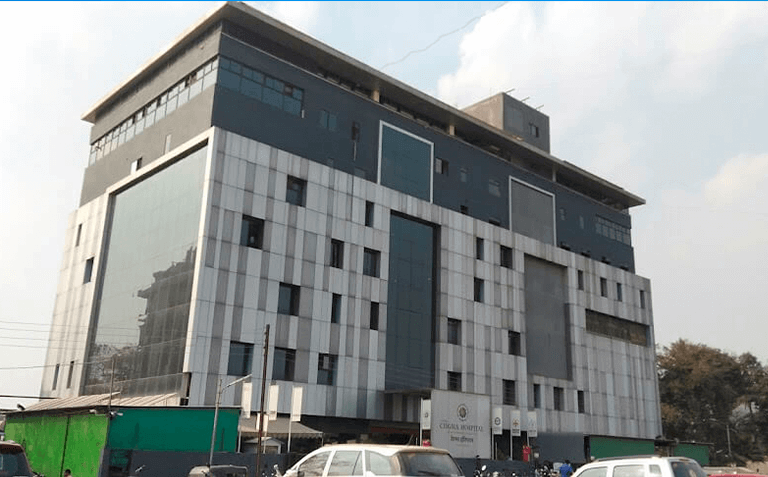
United CIIGMA Hospitals (A unit of CARE Hospitals), Chh. Sambhajinagar
Plot no 6, 7, Darga Rd, Shahnoorwadi, Chh. Sambhajinagar, Maharashtra 431005
-
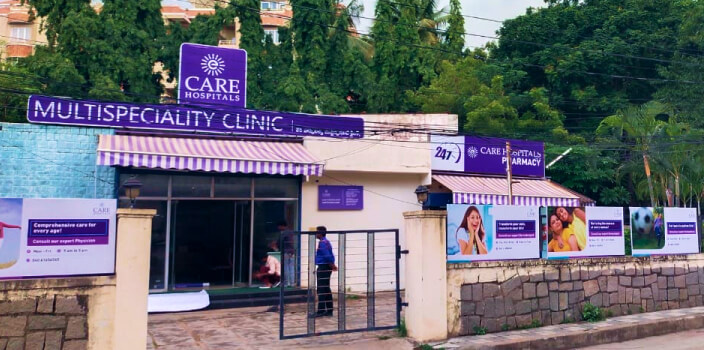
CARE Multispeciality Clinic, Srinagar Colony, Hyderabad
8-3-1101/1, Care Clinic, Plot No 105 A, Srinagar Colony Main Rd, Beside MCH Park, Venkateshwara Hills, Banjara Hills, Hyderabad, Telangana 500073
-
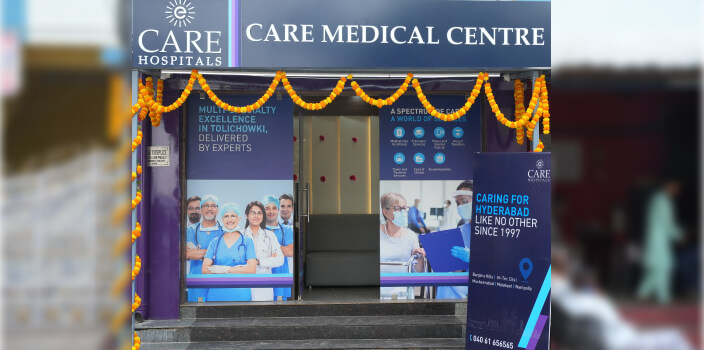
CARE Medical Center, Tolichowki, Hyderabad
366/B/51, Paramount Hills, IAS Colony, Tolichowki, Hyderabad, Telangana 500008
Doctor Blogs
-

Endoscopic Submucosal Dissection (ESD): What it is, Procedure, Side Effects and Recovery Process
Advancements in medical technology have revolutionised the treatment landscape for gastrointestinal conditions...
11 February
Read More
-

Peroral Endoscopic Myotomy (POEM) for Achalasia Cardia
POEM, or peroral endoscopic myotomy, is a minimally invasive endoscopic procedure that is employed for the tre...
11 February
Read More
-

Endoscopic Mucosal Resection (EMR): What it is, Procedure and Recovery Process
EMR, or Endoscopic Mucosal Resection, is a therapeutic procedure used for diagnostic and treatment purposes of...
11 February
Read More
-

Cyst vs Abscess: Know the Difference
Exploring the subtle yet crucial disparities between cysts and abscesses reveals distinct characteristics in t...
11 February
Read More
-

Headache Due To Gas: Causes, Symptoms and Home Remedies
One sureshot reason that can ruin your day is a Headache. Headaches can be pesky companions, and their causes ...
11 February
Read More
-

Chest Pain Due To Gas: Symptoms, Causes, Diagnosis, and Treatment
Chest pain due to gas, often referred to as chest discomfort due to gas, is a common and typically benign cond...
11 February
Read More
-

How to Get Rid of Gallbladder Stones Without Surgery?
Gallstones, those small, pebble-like deposits that form in the gallbladder, can bring about a world of discomf...
11 February
Read More
-

Acid Peptic Disease: Symptoms, Causes and Treatment
Acid peptic disease, also known as acid-related disorders, encompasses a group of conditions characterized by ...
11 February
Read More
-
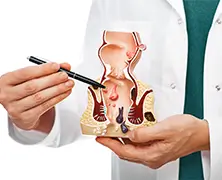
Difference Between Piles, Fissures, and Fistula
Piles and fissures are anal pathologies which cause certain common symptoms like passing bloody stools or havi...
11 February
Read More
-

Appendicitis: Symptoms, Causes, Diagnosis, Treatment, Foods to Avoid and Prevention
The appendix is a small, finger-like organ. It looks like a tube-shaped pouch located near the lower right of ...
11 February
Read More
-

Changing Trends in Bariatric Surgery
Bariatric Surgery is essentially a collective term given to Gastric Bypass Surgery and other related weight lo...
11 February
Read More
-

Top 5 Liver Diseases and Their Causes
The liver is the largest solid organ of the human body. It performs a myriad of important and life-sustaining ...
11 February
Read More
-

Bariatric Surgery and COVID-19
Long before the world had to deal with COVID, another pandemic lingered in the shadows. This pandemic affected...
11 February
Read More
-
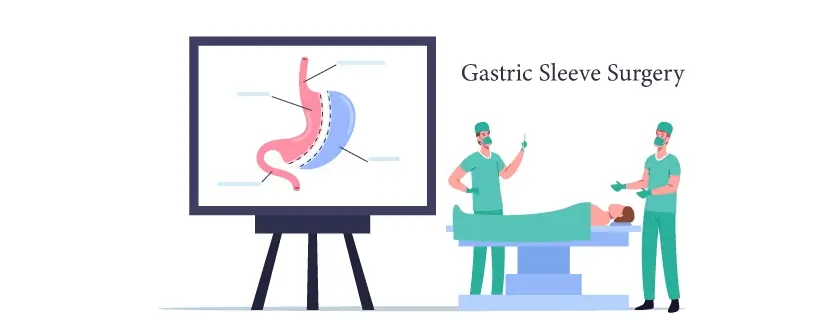
Gastric Sleeve Surgery
One of the increasingly popular ways of tackling obesity is bariatric surgery. It is one of the most popular b...
11 February
Read More
-

Bariatric Surgery: 8 Steps to Prepare For It
Bariatric surgery is the collective term for gastric bypass and other weight-loss surgeries. It involves makin...
11 February
Read More
-

5 Common Digestive Problems and Ways to Manage Them
Stomach aches, vomiting, loose bowels and nausea are some of the most symptoms of digestive problems that...
11 February
Read More
-

5 Signs Your Digestive System Is Not Working Properly
The digestive system is a complex and wide-ranging part of the body. It spans from our mouth all the way ...
11 February
Read More
-

Alcoholic Liver Diseases: Signs, Symptoms and Treatment Options
Overconsumption of alcohol, over a period of time can result in alcoholic liver disease. It not only leads to ...
11 February
Read More
Doctor Videos
-


Rising Obesity Concerns in Women | Dr. Venugopal Pareek | CARE Hospitals
-


National Cancer Awareness Day 2024 | CARE Hospitals, Bhubaneswar
-


విజయవంతంగా బేరియాట్రిక్ సర్జరీ (Weight Loss Surgery) | Patient Success Story | Dr Venugopal Pareek
-
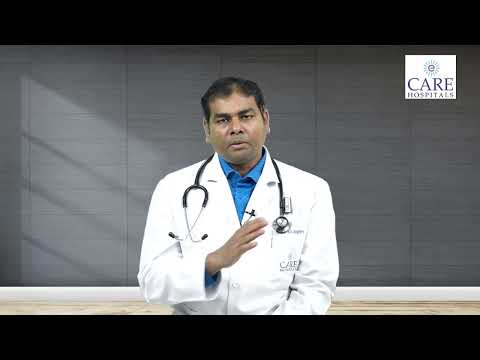

5 Signs Your Liver is Damaged | Dr Dilip Kumar Mohanty | CARE Hospitals, Bhubaneswar
-
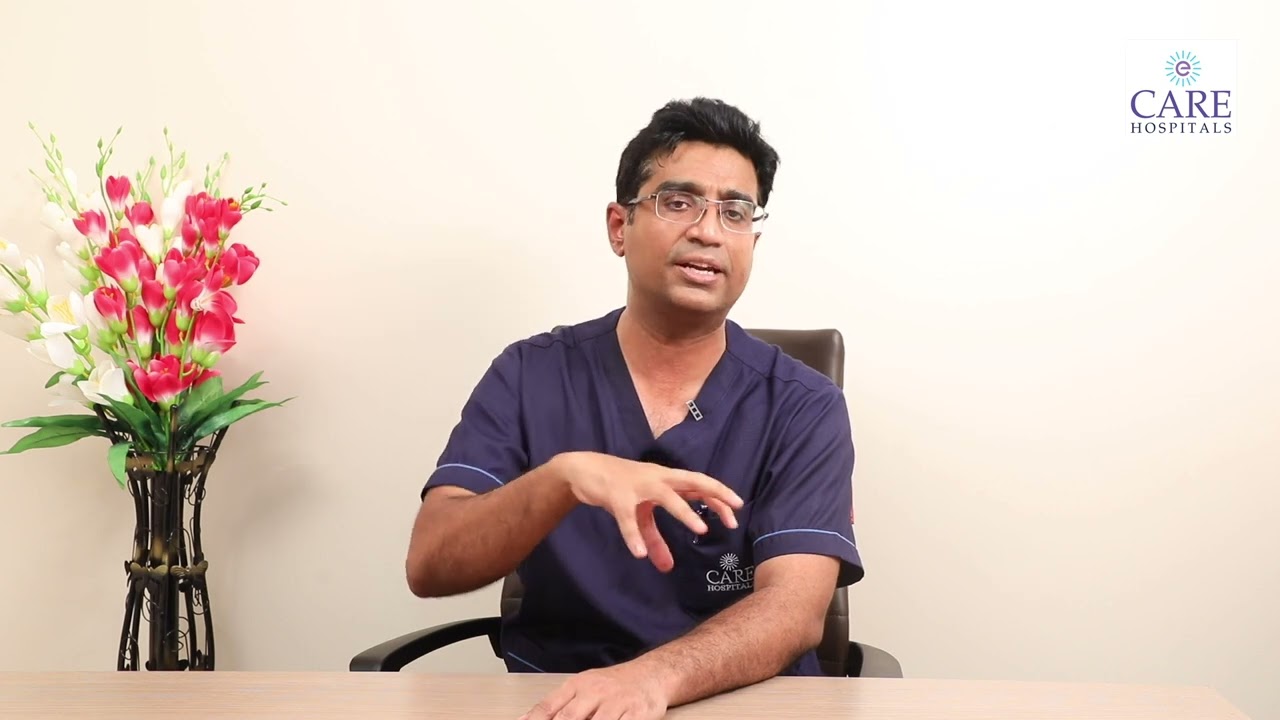

Pancreatic Cancer: Everything You Need To Know | Dr. Mustafa Hussain Razvi | CARE Hospitals
-


पित्ताशय की पथरी को समझना | CARE Hospitals | Dr. Mustafa Hussain Razvi
-


Hernia क्या है? लक्षण, कारण, बचाव और उपचार | CARE Hospital | Dr. Mustafa Hussain Razvi
-


बवासीर या piles क्या हैं? - प्रकार और उपचार के विकल्प | CARE Hospitals | Dr. Mustafa Hussain Razvi
-


Colon Cancer: यह क्या है, और उपचार के विकल्प क्या हैं? | CARE Hospitals | Dr. Mustafa Hussain Razvi
-


Pancreatic Cancer: क्या है? लक्षण, कारण, बचाव और उपचार | CARE Hospitals | Dr. Mustafa Hussain Razvi
-


Gallbladder: What You Should Know | CARE Hospitals | Dr. Mustafa Hussain Razvi
-


Types of Hernias: Know the Risks, Causes and Who is Affected | Dr. Mustafa Hussain Razvi
-


What are Hemorrhoids: Types and Treatment Options | CARE Hospitals | Dr. Mustafa Hussain Razvi
-


Colon Cancer: What is it, Causes, Symptoms and Treatment | Dr. Mustafa Hussain Razvi
-


ప్రపంచ కాలేయ వ్యాధి దినోత్సవం (హెపటైటిస్) పై అవగాహన | డా. ఎం. ఆశా సుబ్బ లక్ష్మి | కేర్ హాస్పిటల్స్
-


What are the causes of liver disease? | Dr. M. Asha Subba Lakshmi | CARE Hospitals, Hitec City
-


बूढ़े लोगों के लिए मोटापे का इलाज | Dr. Venugopal Pareek | World Obesity Day 2022 | CARE Hospitals
-
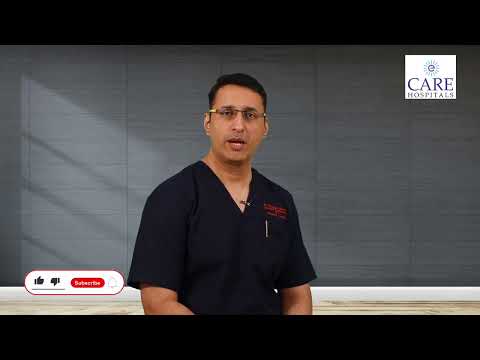

Challenges in the treatment of obesity in the elderly | Dr. Venugopal Pareek | World Obesity Day
-


Can Obesity Effect Fertility | Dr. Venugopal Pareek | World Obesity Day 2022 | CARE Hospitals
-


Life after bariatric surgery? explained by Dr. Venugopal Pareek | CARE Hospitals
-


How does Bariatric surgery work? Dr. Venugopal Pareek | CARE Hospitals, Banjara Hills
-
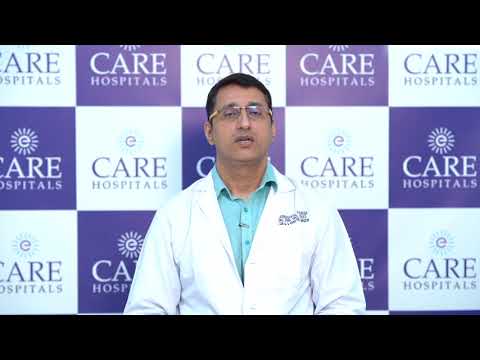

Dr. Venugopal Pareek talk on Hernia and it's common types | CARE Hospitals
-


How to choose the best type of weight loss surgery | Dr. Venugopal Pareek | CARE Hospitals
-


Treatment options for Gastroesophageal reflux disease (GERD) | Dr Venugopal Pareek | CARE Hospitals
-


Weight loss and Quality of life after bariatric surgery | Dr. Venugopal Pareek | CARE Hospitals
-


Types of Bariatric Procedures | Dr. Venugopal Pareek | CARE Hospitals
-


Common Types of Gastrointestinal Surgical Procedures | Dr. Venugopal Pareek | CARE Hospitals
-


What is the safest and most effective weight loss surgery | Dr. Venugopal Pareek | CARE Hospitals
-
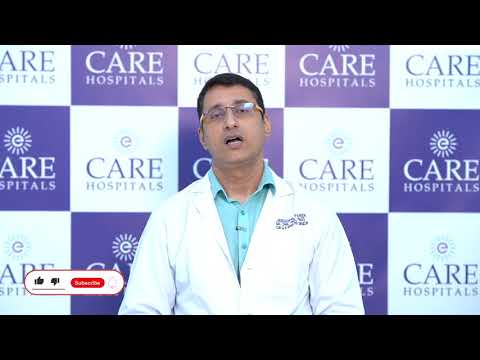

What is the best way of treating type 2 diabetes and obesity | Dr. Venugopal Pareek | CARE Hospitals
-


Bariatric Surgery Risks, Complications & Side Effects | Dr. Venugopal Pareek | CARE Hospitals
-


Bariatric surgery and type 2 diabetes | Dr. Venugopal Pareek | CARE Hospitals, Banjara Hills
Frequently Asked Questions
Still Have a Question?


